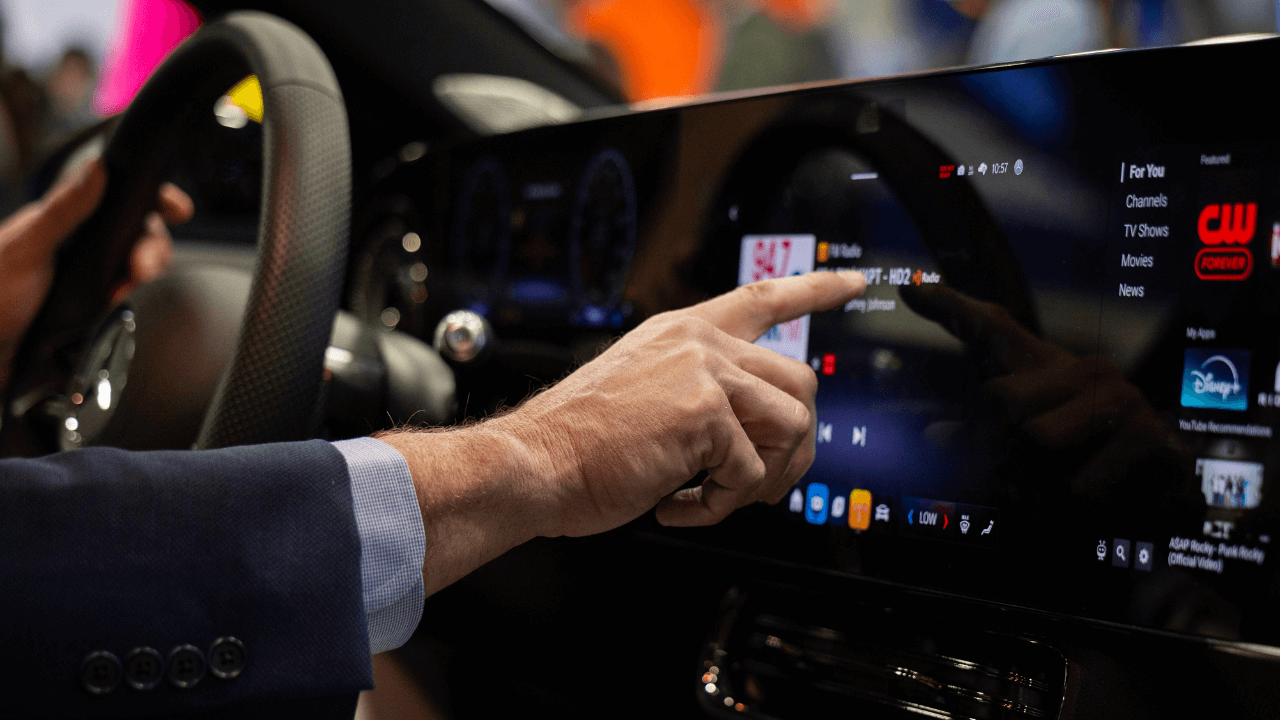Comprehensive ecosystem-wide collaboration and coordination will be the key to meeting the needs of increasingly sophisticated consumers who demand high-quality experiences that are easy and safe to use, according to Xperi CEO Jon Kirchner.
We sat down with Kirchner to explore the strategic, operational and economic implications of delivering quality, managing complexity and building trust in today’s global digital marketplace. Here is what he had to say:
Q: Thank you for taking the time to chat. Perhaps we can start by describing the fierce race taking place to keep up with the constantly evolving demands of consumers. What do you see as the keys to meeting these expectations?
Kirchner: We have seen several phases of technology adoption and consumer interaction unfold over the past several decades. This is especially true when it comes to personal entertainment and connectivity technologies. If we look back 20 or 30 years, we saw an interesting trend manifest itself as consumers opted to trade some measure of quality for convenience and then convenience for capability.
For instance, I can still remember when providers of telephone connectivity to the home promised call-quality levels so high you could hear a pin drop. Consumers clearly went in the other direction on call quality as they embraced the convenience—and eventually the enhanced functional capabilities—of mobile devices. A similar trend took place around personal music entertainment. The rise of personal and portable cassette players decades ago fundamentally changed how consumers enjoyed their music, with many leaving their investments in hi-fi analog audio equipment behind.
Today, we live in a no-compromise economy. Technology and consumer expectations have converged to a point where people expect all their key demands to be met. They want to enjoy their experiences when and where they choose. They want these experiences to be both easy and intuitive to use. And, in today’s digital environment, they want to be assured that their data is secure and their privacy is protected.
The good news is that advancements in semiconductor and machine learning technology are making it possible for consumers to have these needs met. But getting this done is a team sport. To provide consumers with high-quality experiences in which the underlying complexity is effectively managed securely, there must be alignment across the value chains that bring solutions to connected homes, connected cars and—in general—to our connected lives.
Aligning and delivering on all three of these principles is the key to adopting new innovative digital offerings. No one understands this better than the Xperi team since we are an organization that offers critical technological ingredients to some of the most demanded products and services in the market.
Q: Have you seen fundamental changes in consumer attitudes that affect technology adoption?
Kirchner: The COVID-19 pandemic caused people to lean into their digital lives at much greater and faster rates. Now, more than two years into the pandemic, people have had time to get comfortable with new technologies and platforms and raise their expectations around what these new technologies can deliver and how they are delivered.
As this digital literacy continues to accelerate across demographic generations, emerging trends will indicate when and where people communicate, socialize and what exactly they expect from their technology.
At Xperi, we are working to address these trends so that we – and our partners – can provide innovations that meet at this intersection of the physical and digital while helping the broader ecosystem meet the changing needs of consumers.
Q: How are you seeing these factors–demand for high-quality experience, complexity management and the need to maintain consumer trust–reflected in the competitive landscape?
Kirchner: Consumer-facing companies that have figured out how to address these factors are already reaping the rewards through competitive differentiation and market share. These are the companies that we at Xperi seek to work with as we make strategic decisions about our future. These organizations are dedicating specific time, energy and resources to address and integrate quality, complexity management, trust and privacy. These are also organizations that recognize that achieving the ultimate connection with consumers requires the advancement of broader ecosystems. This is because consumers are functioning in broader ecosystems themselves.
Just as we are seeing a blurring between our digital and physical lives, we are also seeing much higher levels of integration in how products and services operate to support consumers in their different “spaces.” By that, I mean consumers expect continuity as they move from their homes to their vehicles and into other environments they encounter throughout their day.
This realization requires the innovation and technology development community to establish a much more thoughtful approach to the “context” of their offerings.
It raises interesting questions about how to support different consumer interests throughout their day and how to define quality from today’s more dynamic experiential perspective. This requires access and processing of a tremendous amount of data, which is itself a big responsibility for ecosystems to shoulder. Success will require product and service providers serving the needs of consumers to create spaces that make consumers feel safe with respect to their personal data.
Q: What do you see as the underlying technological developments that are driving these consumer expectations…and the industry’s response?
Kirchner: Well, I already mentioned how progress is accelerating from a hardware perspective with things like semiconductor technology and from a software perspective with things like artificial intelligence and machine learning. There are other exciting developments, with big changes that are already influencing the innovation curve.
Products and services based on 5G, Internet-of-Things (IoT) and edge-computing are game-changers in their own right. But as we mix and match the capabilities of these technologies, the possibilities to create exciting new experiences are nearly infinite.
This is already raising the bar and opening opportunities for companies like Xperi and our partners, who are committed to delivering a better, more impactful and more trusted experience to consumers worldwide. For instance, Xperi is working with major ecosystem players—including Sony, Mercedes Benz and IMAX—to deliver innovative experiences with these technologies. The objective is to meet and exceed the evolving consumer demands.
There is a growing reliance on advanced automation, predictive analytics and situational awareness that requires a low-latency response to meet the specific needs of specific individuals in specific situations. This is true across the different value chains.
Let me give you specific examples of what I am talking about by describing what Xperi is doing in the connected car sector with products like DTS AutoStage and DTS AutoSense.
AutoStage is our next-generation radio system that brings ever more information into the car via a best-in-class modern experience. AutoSense is a safety offering that monitors drivers and occupants to recognize situations that may not be safe—such as a driver nodding off at the wheel—to trigger an appropriate response.
This illustrates how Xperi is leveraging advanced image and audio technologies to address the complexity people face today in their digital lives by working with ecosystem partners who are creating innovative and safe environments in which these experiences can be experienced. Edge computing technology plays an immense role in delivering this last consumer expectation.
Q: What investments do you recommend making to address the issues of trust, complexity management, and adoption issues?
Kirchner: Emerging technologies should be focused on addressing core issues that live at the junction of quality and complexity. These technologies will have to be more intuitive, immersive, intelligent and in tune with changing consumer behaviors.
Overall, companies need to be much more mindful of the amount of data that is being generated. They also need to ensure that consumers have some control over how data is collected and used. While the different ecosystems have taken steps in this regard, there’s still much more to do in terms of consumer education and transparency.
Companies also need to remain mindful of the amount and complexity of data they are capturing and then think about interoperability in much more profound ways. This will enable solutions providers to leverage intelligence in one environment (say the connected car) and deliver it to another (the connected home).
Consumer adoption rates will depend on how successfully companies can deliver a complex array of services while still delivering a degree of familiarity to make operating across different environments more intuitive. This will provide a favorable experience that encourages consumers to engage and explore new technologies.
Xperi will continue to work diligently with our partners to incorporate machine learning and artificial intelligence to raise the bar on delivering top-quality entertainment experiences in the home, in the car and on the go.
We’re excited about the opportunities to integrate greater levels of interoperability, personalization and security.


